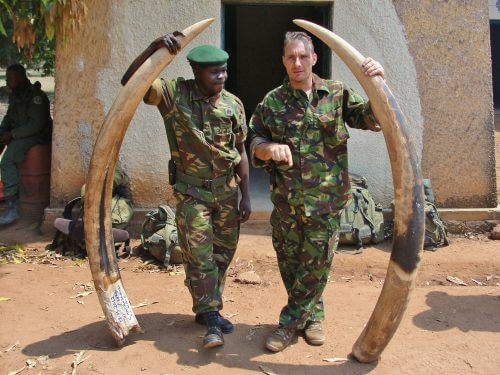A clinical psychologist treats traumatized inspectors fighting illegal hunting in Africa

Illegal poachers operating across the African continent killed 2015 elephants and 24,000 rhinos in 1,300 alone, but the animals are not the only victims of theThe illegal wildlife trade. According to the estimate, about 1,000 inspectors have been killed in the line of duty during the last ten years, and the number of victims is expected to rise. in a recent survey World Wildlife Fund Among 270 inspectors in 12 countries in Africa, 82% of them said that they had more than once faced danger to their lives during their work. The war against illegal hunting also exacts a mental toll that is only now being recognized for the first time among experts. Susanna Fincham, a clinical psychologist from Sabie, South Africa, is one of the first professionals to study the mental health problems that plague inspectors and develop methods to treat them. Not long ago, Peacham spoke with a Scientific American reporter about the special challenges she recognizes in this field. And here are edited excerpts from the interview.
Scientific American: Why are inspectors particularly prone to develop anxiety, depression and post-traumatic stress disorder?
Susannah Fincham: The inspectors undergo training to protect the wild animals, and in the past the use of firearms was limited to situations where it was necessary to take control of dangerous animals. But since 2006 or so, illegal hunting has expanded and spread to such proportions that the inspectors are sometimes required to turn their weapons on humans. BKruger National Park In South Africa, one of the places where I work, encounters with organized and well-armed gangs of illegal hunters are everyday events. This is a guerrilla war, and the danger faced by the inspectors is extremely serious. As a result, they are often exposed to traumatic situations.
In what way do you try to make it easier for them?
I use the techniques of training and psychological counseling in an attempt to help the inspectors deal with the situation and not fall victim to post-traumatic stress disorder (PTSD). This involves a careful clinical assessment of their emotional state. One of the methods is Psycho-education, or imparting knowledge about the body's response to trauma. Among other things, I explain to my patients the reasons why they sweat, shake, have trouble falling asleep and often experience Panic reflex. I teach them how to feel less stressed by controlling their breathing and muscle tension. I also useNarrative approach, and asking them to tell me, for example, about the worst thing that happened to them. I ask them what they felt at the time, and point out that the symptoms of distress and stress they experienced are normal and ordinary and that despite everything, they survived the event. In order to bring relief to their sense of anxiety, they must be made aware that they got out of the incident safely and dealt with it successfully.
Are there many other psychologists who provide similar services?
no, not at all. In the past, the tendency was to focus on the military functions of the inspectors and not on their safety and well-being. Only now is the recognition of the need to do this arise. In South Africa there is also a strong prejudice against seeing a psychologist, especially among men. But recently, more and more senior inspectors are asking for help, so that the wall of resistance is gradually being cracked. Since 2011, I have taken care of about 120 inspectors, and I also talk with their families about the issues that bother them. In Africa as a whole there are no less than 25,000 inspectors.
And what's next, as for you and the inspectors?
I am developing a culturally sensitive therapeutic strategy, specially adapted for supervisors, and I would like to collect and publish all the information I have found on the subject, so that it is available to anyone who wishes to use it. In the longer term, I would like to see the establishment of a special independent unit of psychologists and social workers for the inspectors.
See more on the subject on the science website:
